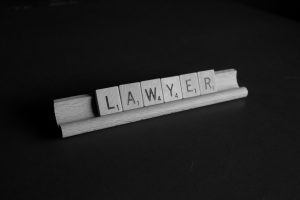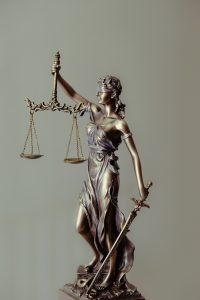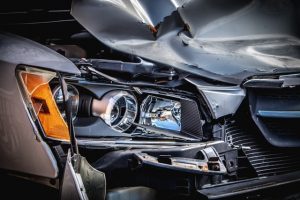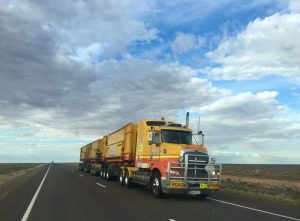Everything You Need to Know About Premises Liability Lawsuits
Premises liability is commonly applied in personal injury cases. The situations typically involve an unsafe or irresponsible set of conditions that a plaintiff would argue was created by the party responsible for the premises in question. Premises liability can become a complicated topic based on the facts of the case. It is always wise to consult with a premises liability attorney if you believe you may be a plaintiff or defendant in such a case.
An example of a premises liability case could be a factory that uses saws and requires regular inspections and maintenance. However, the manager who is responsible for the saws has neglected their duties in performing inspections and maintenance. If the worker injures themselves as a direct result of the manager’s negligence, that worker will likely have strong merits to sue the factory. Alternatively, there could be an argument for comparative negligence or contributive negligence, which this article will discuss later.
When Did Premises Liability Start?
This concept emerged in English common law when people who visited another person’s property were divided into three categories: invitee, licensee, or trespasser. Over the course of the 20th century, numerous landmark cases such as Rowland v. Christian (1968) and Calvillo-Silva v. Home Grocery (1998). Premises liability also changes from state to state depending on legislative statutes and supreme court rulings.
An important element of premises liability is comparative negligence vs. contributory negligence. These two concepts are influenced either by statute or common law.
Comparative Negligence
Comparative negligence is the concept of being able to “divide” the level of blame in a certain case. If we think back to the previously mentioned example of the worker getting injured in the factory, we can add some additional facts to understand this concept.
For the sake of example, let’s say that the same fact pattern exists, but in this scenario the worker also had a few beers before his shift started. After going to work with a buzz, the worker cuts himself on a saw; however, that saw was also poorly maintained and not properly inspected. If the incident turns into a lawsuit and makes it to a jury, there is a chance that they could determine a 50/50 split in levels of negligence.
Therefore, in this case, if the damages were valued at $100,000, the worker would only receive $50,000.
Contributory Negligence
This concept only applies in a few jurisdictions in America. They are Alabama, Maryland, North Carolina, Virginia, and Washington DC. Under this legal concept, if it is found that a plaintiff contributed in the slightest degree to their injury, they will be barred from any damages whatsoever. If we consider our prior example of the buzzed factory worker, that worker would receive zero compensation if the judge or jury found contributory negligence applied.
Common Premises Liability Lawsuits
Here are some of the more common incidents in which a premises liability lawsuit may arise. The possibility that any of these incidents may occur is important to keep in mind when you are doing things like purchasing a new home, reviewing your insurance policy, starting a business, and others.
- Animal and Dog Bites
- Hazardous Property
- Slip and Fall Accidents
- Negligent or Inadequate Security
- Swimming Pool Injuries
- Inadequate, Negligent, or Improper Maintenance
- Retail Store Liability
- Restaurant Liability
What to Do If You’ve Been Injured?
If the situation is an emergency, be sure to first seek medical attention. You should also retain records of everything involving the incident after you have been treated. It will also be important to know what happened and have a recording of the facts that preceded the incident. Do not share the information you have with anyone except your attorney and anyone your attorney advises is privy to the information.
It is also important to avoid admitting fault to friends or witnesses who may have been involved in the incident. For example, if you get bitten by a neighbor’s dog and get seriously injured, do your best to avoid making an excited utterance such as, “Sorry, it was my fault and I should have been more careful!”
Be sure to contact a premises liability attorney as soon as you can.
Four Elements of Establishing Premises Liability
A premises liability injury follows tort rules regarding negligence. What this means is that there are four basic elements to determine liability. In the case of premises liability, those elements are as follows:
- Duty: This is taking precautions to prevent injuries to people around you from present hazards or dangerous situations. An example you see on a regular basis might be in the grocery store when someone spills something or an employee is mopping. You will most likely always see a warning sign that says something along the lines of “Slippery when wet.”
- Breach of Duty: Failing to follow the previous duty.
- Presence of an injury: In order for a plaintiff to have a cause of action, there must be an injury that requires a remedy.
- The breach of duty caused the injury: The plaintiff’s injury must have been caused by the breach of duty in order for it to be relevant.
Keep Your Home Safe
Of course, no one would ever want to purposefully injure a friend or family member who visits you in your home or business. However, despite that feeling, it is still important to make sure you take care of any potential hazards. This includes warning signs for wet surfaces, making sure rugs are not going to slip and slide on a hardwood floor, raising a fence around your pool, putting lighting in darkened places, supervising children who may be visiting, and properly securing potentially dangerous animals.

Contact Reynolds, Horne, and Survant
No one should ever go through a premises liability lawsuit without legal guidance. Premises liability law is well developed and complex throughout all of America’s jurisdictions. Contact a premises liability attorney at Reynolds, Horne, and Survant for a consultation at 478-320-4118.






